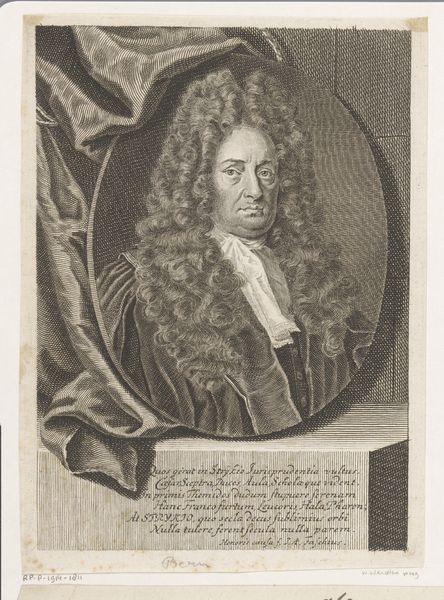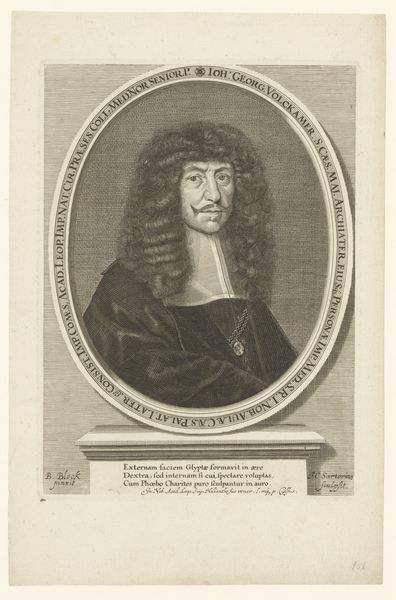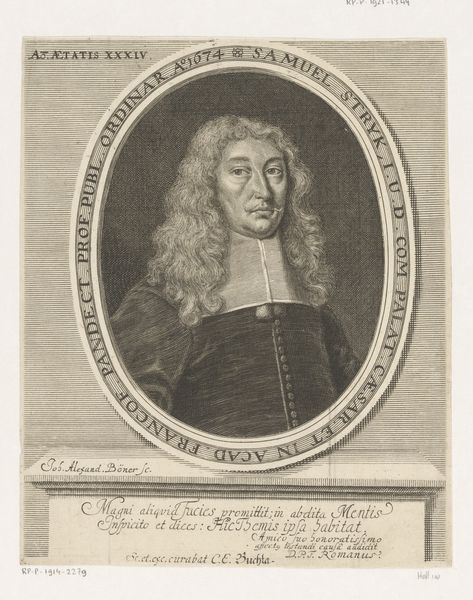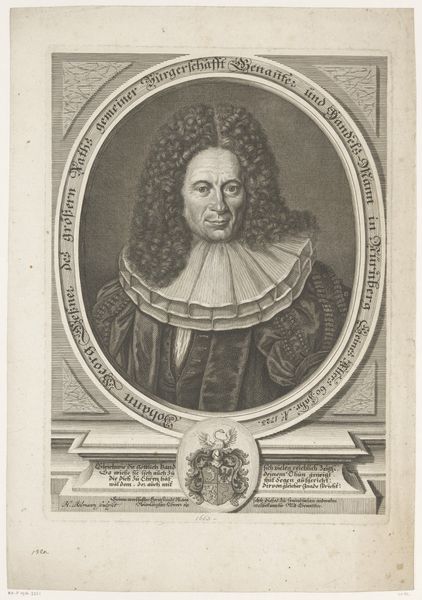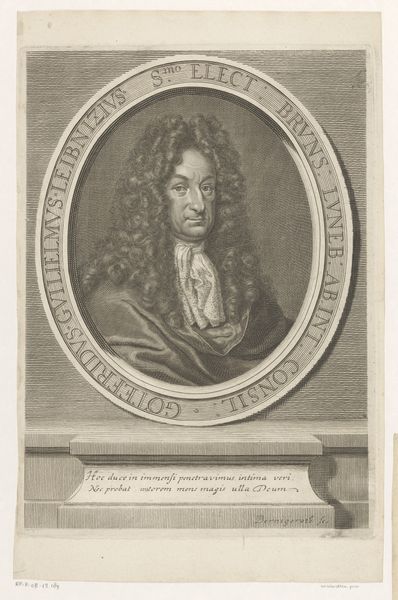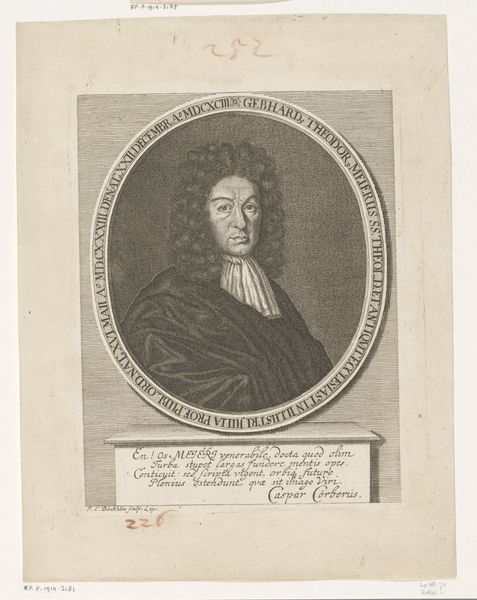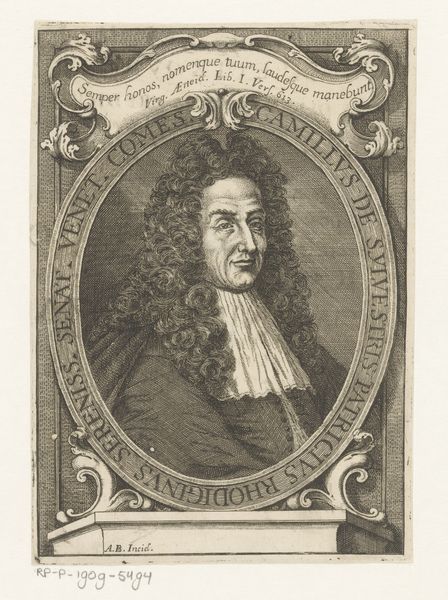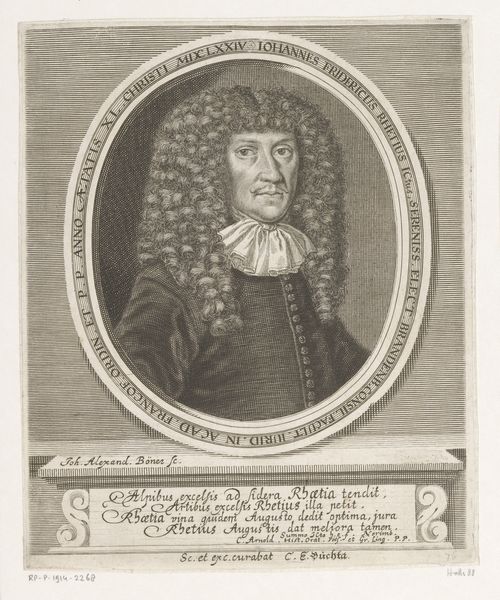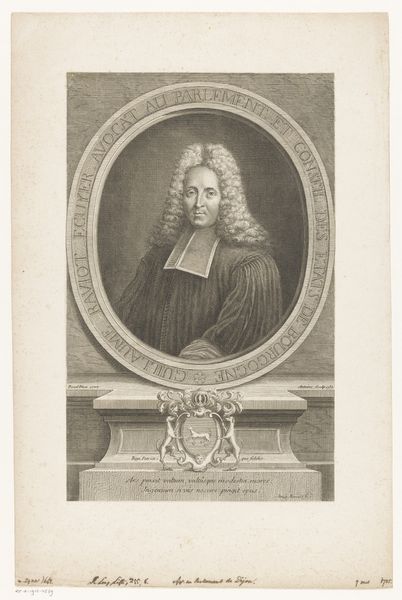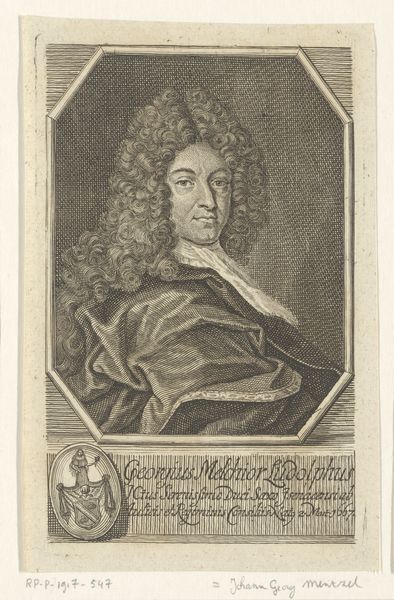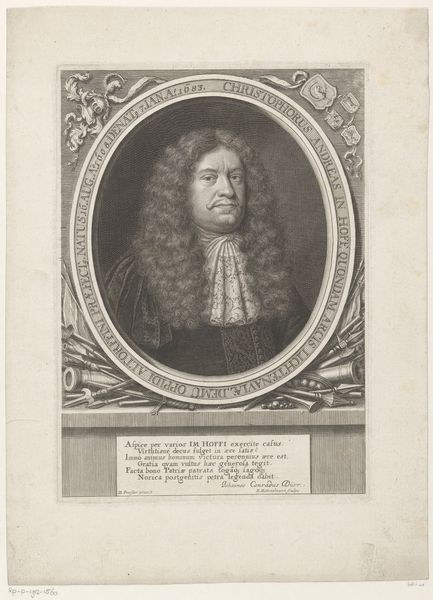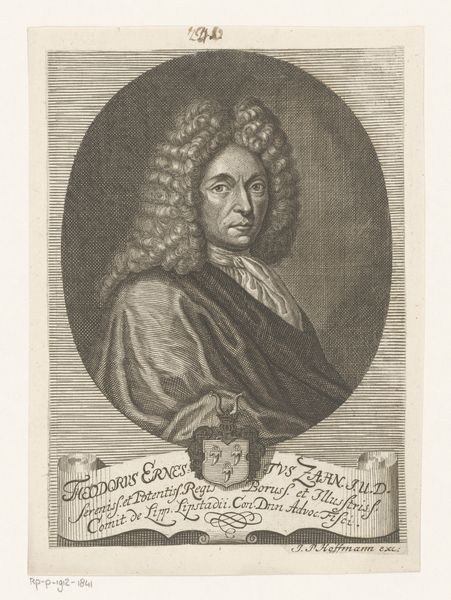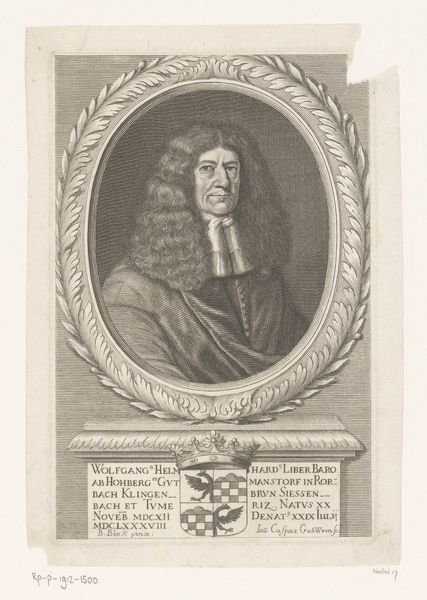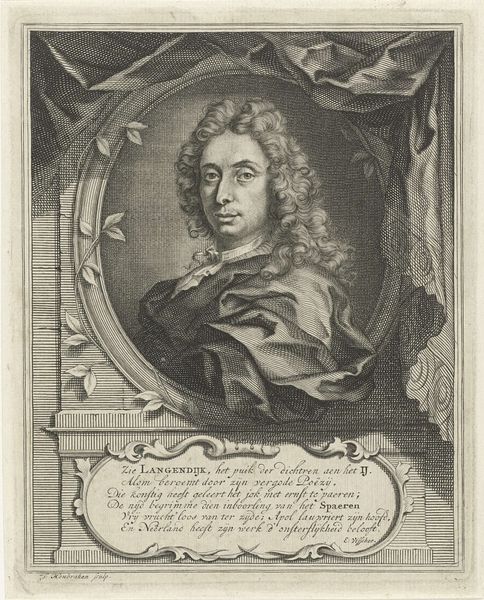
print, engraving
#
portrait
#
baroque
# print
#
old engraving style
#
caricature
#
historical photography
#
history-painting
#
engraving
Dimensions: height 275 mm, width 182 mm
Copyright: Rijks Museum: Open Domain
Editor: This is a print, an engraving actually, of "Portret van Jacobus Pictetus" made sometime between 1673 and 1740 by Johann Georg Seiller. The figure has such a commanding presence, framed within that elaborate oval and perched above that ornate inscription. It's quite impressive, almost imposing. What's your interpretation? Curator: It’s more than just impressive; it’s a deliberate construction of power and status. The Baroque period, you see, used portraiture extensively to project an image of authority. Note how Pictetus, likely a man of influence in Geneva given the inscription, is literally framed by his role "Consiliopum Decanus" within Genevan society. Editor: So, the frame is not just decorative; it reinforces his societal position? Curator: Precisely. And consider the text beneath the portrait. Do you see how it emphasizes his incorruptibility, love for religion, and devotion to his country? This isn't simply about depicting a person; it's about constructing a narrative of virtue and leadership, almost like propaganda through art. This engraving serves to enshrine Pictetus within a specific ideological framework, showcasing the intrinsic ties between power, morality, and representation in 18th century Geneva. Who benefits from such framing? Editor: I never thought of it that way, as a constructed narrative. That makes me consider the intent behind it, rather than just the aesthetic. It really brings to light the politics intertwined within art of this era. Curator: Exactly. The portrait isn't just an image. It's a carefully crafted statement within a specific historical context. I am glad you now appreciate the inherent activist power of such an image. Editor: I am glad too; thank you for the fascinating analysis!
Comments
No comments
Be the first to comment and join the conversation on the ultimate creative platform.
